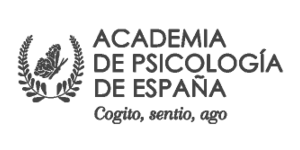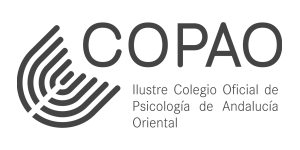Speaker

MARÍA VICENT
UNIVERSITY OF ALICANTE. SPAIN
María Vicent (WoS h-index = 18; Sopus h-index = 18) holds a PhD in Educational Research from the University of Alicante (International Mention and unanimous Cum Laude, with Extraordinary Award). In 2014, she obtained a Predoctoral Training Grant from the Regional Ministry of Education (GVA, VALi+d Program; 2014), which allowed her to join the Department of Developmental and Didactic Psychology in the Faculty of Education (University of Alicante). She currently holds a Full Professor position in this same department and has completed a six-year research period in Psychology and two five-year teaching periods.
She has completed predoctoral and postdoctoral fellowships at the University of Plymouth (United Kingdom), the University of Bío-Bío (Chile), and the Miguel Hernández University of Elche (Spain). Her area of specialization is perfectionism in childhood and adolescence. She has participated in research projects funded by the University of Alicante, the Generalitat Valenciana (Generalitat Valenciana), the Ministry of Science and Innovation, the Ministry of Economy and Business, the European Union (Erasmus+ Programme), and other international institutions, both as a member of the research team (Highlights: European Commission – SOS-Attendance; PID2021-123118NA-100; RTI2018-098197-B-100; GIDECAP1608320/EF) and as Principal Investigator (GRE19-19 and CIGE/2021/021). She is currently leading the APERFECT project (Evaluation and Analysis of Academic Perfectionism and its Impact on the Educational, Psychological, and Social Development of Primary and Secondary Education Students; PID2023-152358NA-I00), funded by the Ministry of Science, Research, and Universities. He has over 90 published articles (more than 50 published in JCR-indexed journals), 6 books and 19 book chapters published by prestigious publishers such as Pirámide, Springer, Nova Science Publishers and Octaedro, and over 100 contributions to national and international conferences.
New Perspectives on the Study of Perfectionism in Childhood and Adolescence
Perfectionism is a complex and multidimensional personality trait that involves the constant pursuit of perfection, extreme self-demand, and the setting of unattainable performance standards. This trait is also accompanied by intense self-criticism and the perception that the environment imposes perfectionistic demands and makes constant judgments. It is estimated that approximately one in four children and adolescents exhibits high levels of perfectionism, which represents a growing concern in both clinical and educational settings. Several studies have shown that this tendency constitutes a significant risk factor for the development and maintenance of multiple psychological disorders, such as anxiety, depression, obsessive-compulsive disorder, and eating disorders, among others. In this context, the purpose of this symposium is to present some of the most recent findings obtained by our research group within the framework of the APERFECT project (PID2023-152358NA-I00), funded by the Ministry of Science, Innovation and Universities (Principal Investigator: María Vicent). The first contribution will focus on the presentation of a scale with adequate psychometric properties that allows a valid and reliable distinction between perfectionism and excellence in Spanish adolescents. The following two presentations will address the relationship of these constructs with key variables such as social media addiction and positive and negative affectivity. Finally, a new, recently validated instrument for assessing other-oriented perfectionism in the Spanish child and adolescent population will be presented. In conclusion, this symposium provides useful tools for assessing and understanding perfectionism in children and adolescents, both for researchers and for professionals in psychology and education.













